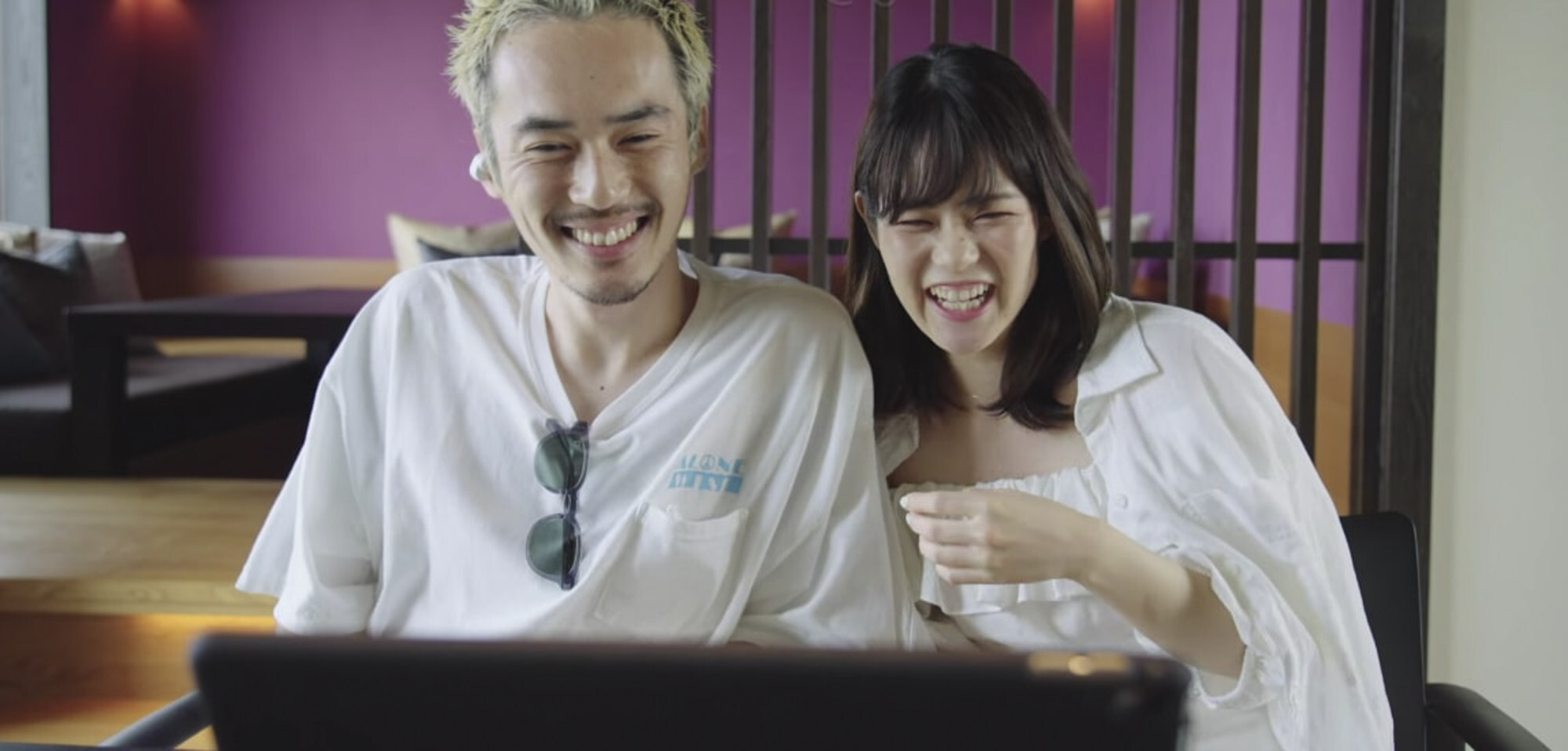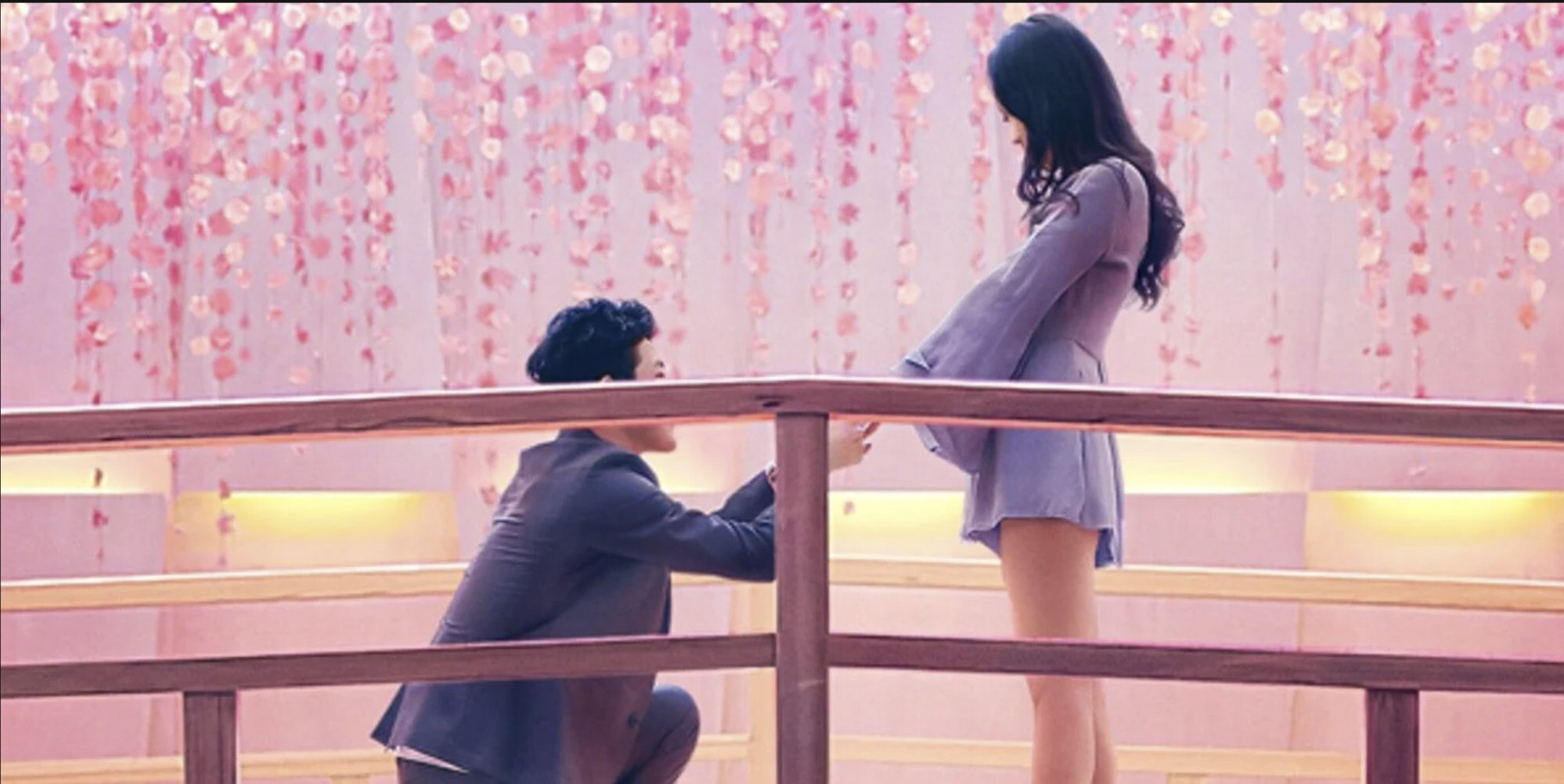
Best shows to stream this week – Love is Blind: Japan and Winning Time: The Rise of the Lakers Dynasty
- Imagine forming meaningful relationships by talking to people you can’t see, to the point where you agree to marry? That’s the premise of Love is Blind: Japan
- Imagine a time when the NBA wasn’t a global sporting behemoth. That it is today has a lot to do with the LA Lakers’ rise, charted in docudrama Winning Time
In an age in which image is everything, and anyone not continually posting on Instagram is tantamount to an Orwellian “unperson”, a reality dating series that seemingly suggests looks don’t matter must be operating at a considerable distance from that reality. Mustn’t it?
Love is Blind: Japan (Netflix), part of a spin-off franchise of the original American show, offers a modern take on the arranged marriage, insofar as the future spouses don’t meet until after they are committed to a trip down the aisle.
Not that they have no say in matters: the “contestants” do the arranging themselves, not with the aid of visual clues but by talking to potential matches through a wall in a series of dating “pods” (essential, really, when one of the women turns out to be a former Miss World Japan).
Bizarre though the arrangement may sound, it does, through 11 episodes of surprisingly emotional vicissitudes, see the show’s stars form meaningful relationships simply by talking to and asking questions of each other, then recording their impressions the old-fashioned way, in a notebook. (Midori, 30, in consulting, even admits that when dating she makes a spreadsheet of men’s qualities. Who said romance was dead?)

By repeated chats with each member of the opposite sex, almost amounting to interviews for the vacant position of husband or wife, the “contestants” home in on their chosen ones. Inevitably, competition for certain catches arises and raises the tension, but not to the point where the rejected candidates are denied sympathy from their new, on-set friends, such is the feeling that they’re all in this psychological experiment together.
The age range is wide, from 23 to 56, as are the professions – yoga instructor, comedian, restaurateur, entrepreneur, musician, hairdresser, fitness trainer, basketball coach and more – perhaps to give every viewer someone special to cheer on. But while pairing off in the studio is all very well, what will happen out in the real world, when families enter the picture and engagements made earlier must be turned into actual marriages?

Will all those emotions turn out to be true, or as unreal as the setting for the first eyes-on meeting between parties, which takes place on a flimsy-looking “bridge of betrothal” over a fake lake?
Romping to victory
It was a kind of magic – in more ways than one. If the NBA is a global sporting and marketing behemoth today, its planetary reach owes much to an on- and off-court revolution that gripped 1980s America: the extraordinary ascent of the Los Angeles Lakers.
The team’s “Showtime” era was lit up by the irrepressible skills of star players such as Earvin “Magic” Johnson and Kareem Abdul-Jabbar, captured in all their pomp by Quincy Isaiah and Solomon Hughes, respectively, in Winning Time: The Rise of the Lakers Dynasty (HBO and HBO Go, continuing).
As with all the best sport docudramas, Winning Time is about much more than athletic achievement, or in this case, the Lakers’ battles with despised rivals and regular champions, Larry Bird’s Boston Celtics.

John C. Reilly brings a finely calibrated dollop of sleaze to his portrayal of gauche, visionary dreamer Jerry Buss, who buys the team and turns it into a box-office sensation as well as a title-winning outfit.
Grainy inserted footage, period graphics and dodgy wardrobe choices resurrect an America that already feels prehistoric, reanimating it to the point at which the basketball can seem almost secondary to the schmoozing, sex, drugs, celebrity spectators and Laker Girls cheerleaders. Almost. Until Magic works his on-court magic.

